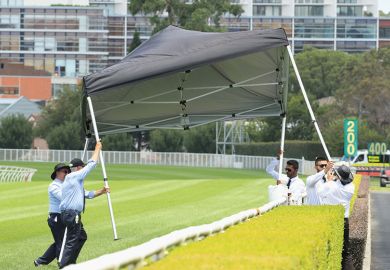Australia’s opposition has flexed its parliamentary muscle to press the government to explain its controversial vetoing of 11 humanities research grants.
The Senate has called on the government to outline why former education minister Simon Birmingham quashed the grants against the Australian Research Council’s recommendations. The senate also ordered the ARC to hand over its most recent briefing to an incoming minister, which shadow science minister Kim Carr hopes will contain information about the overruled funding.
Mr Carr told the Senate that Mr Birmingham had not explained why he overturned the grants “apart from sneering at project titles”.
“The applicants…are all eminent scholars, and the arbitrary rejection of their work affects their reputation and career prospects. This is established principle that politicians should not decide on the funding of individual grant projects,” he said.
The government argued that forcing agencies to table incoming ministerial briefings, in this case the one that went to Mr Birmingham’s successor Dan Tehan, would undermine their willingness to provide “frank and fearless” advice. But the vote went against the government, which does not have a majority in the Senate.
It remains to be seen whether the ARC will comply with the Senate order. If so, it has until the morning of 15 November to provide the document.
In a separate motion, the Senate condemned the government’s “political interference” and noted that the rejection of the grants had been “deliberately and callously kept secret” from the applicants. It called on the ARC to “actively encourage” the affected researchers to resubmit their projects in forthcoming grant rounds.
At least five of them have already applied under the current round, with decisions on successful projects due imminently. But a university email obtained by Times Higher Education suggests that processing of this year’s grants is being delayed – a claim that the ARC has declined to rule out.
In a media statement, Mr Carr said that Mr Tehan must “give certainty” to researchers by setting a date to reveal the successful applicants.
“This is now the latest that the Australian research community has been forced to wait for the announcement of the grants, which are normally made in late October or first days of November,” Mr Carr. “Our best and brightest researchers are heading into Christmas not sure if they are going to have a job in the New Year.”
Register to continue
Why register?
- Registration is free and only takes a moment
- Once registered, you can read 3 articles a month
- Sign up for our newsletter
Subscribe
Or subscribe for unlimited access to:
- Unlimited access to news, views, insights & reviews
- Digital editions
- Digital access to THE’s university and college rankings analysis
Already registered or a current subscriber?








